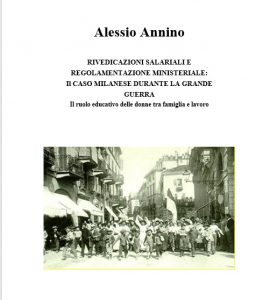
The outbreak of the First World War marks indelibly the moral and educational role of the social fabric of the twentieth century. By decree, all psychophysical and training energies must be focused on the demands of war production. Here is the massive use of female and peasant labor, which leads to a great extension of the turmoil, incorporating people from the countryside into the life and processes of factories. The working situation, for many, changes radically: in agriculture, agriculture is generally based on small and medium-sized enterprises, mostly family-run, while work in factories involves this frantic and unbridled production process under the directives of others. As a result, the role of women as well as family educators is also changing.
